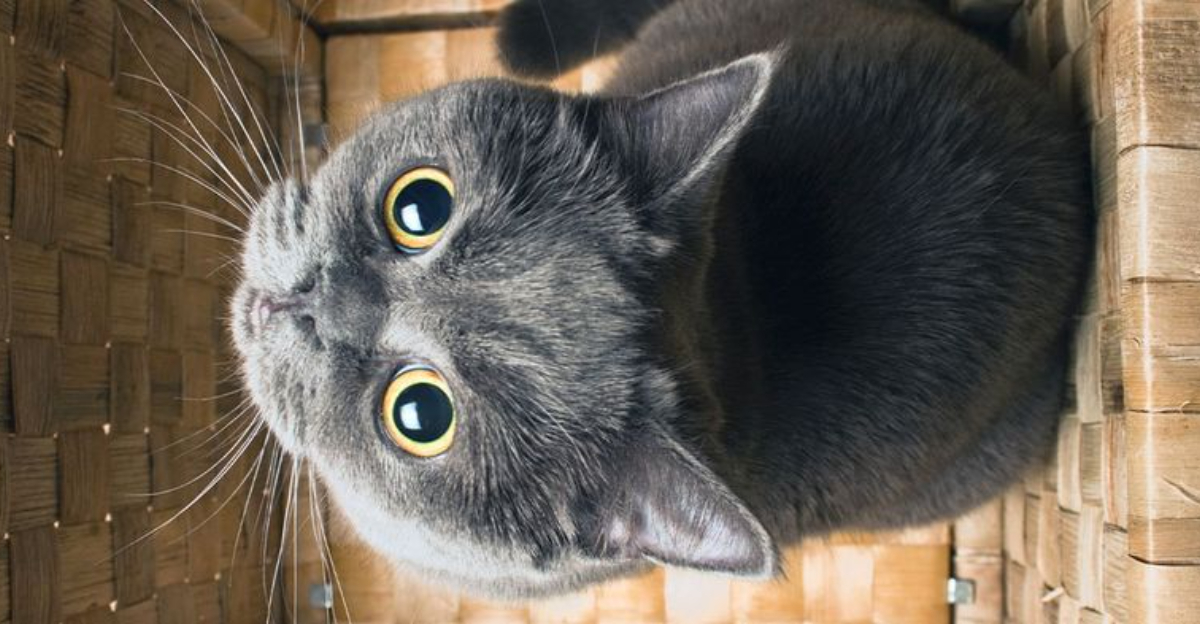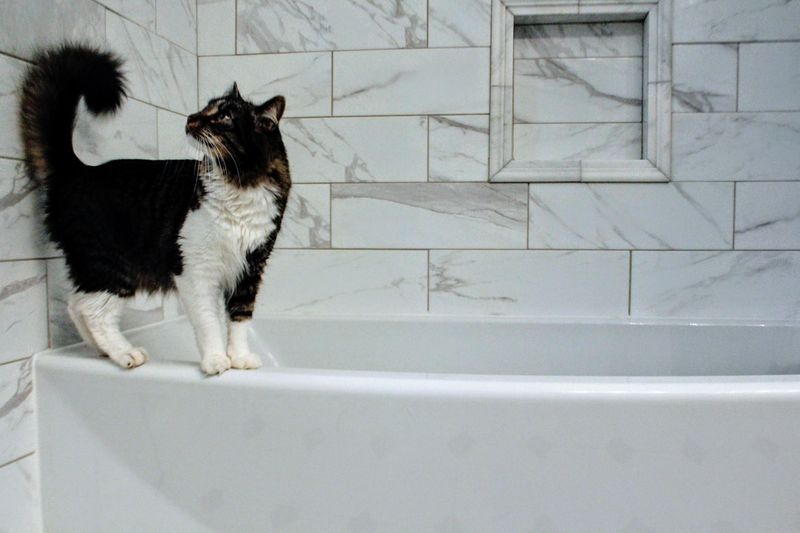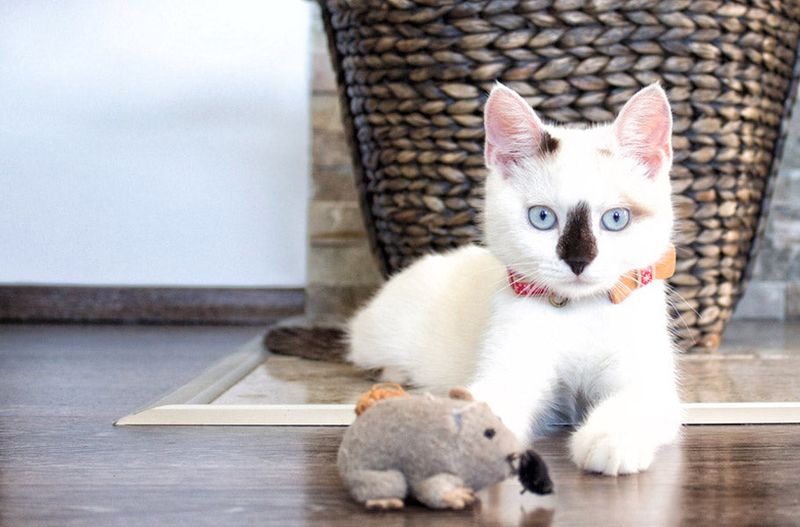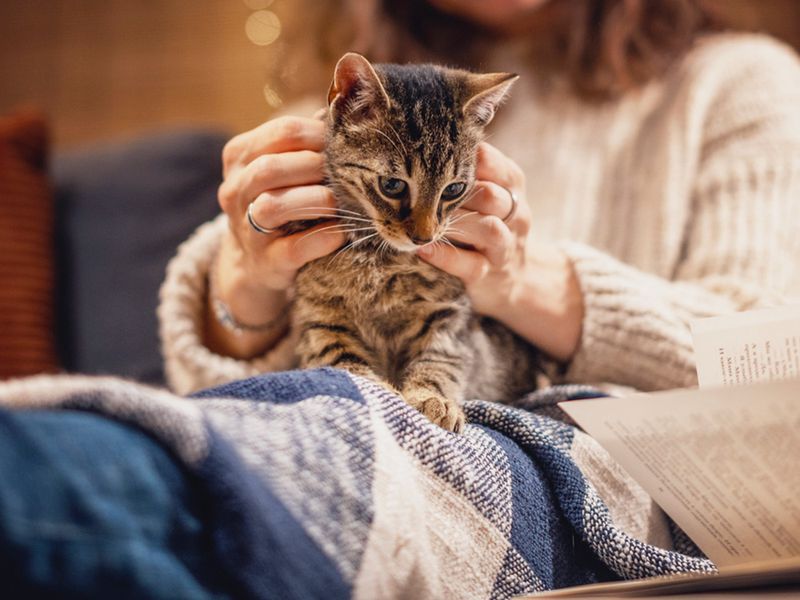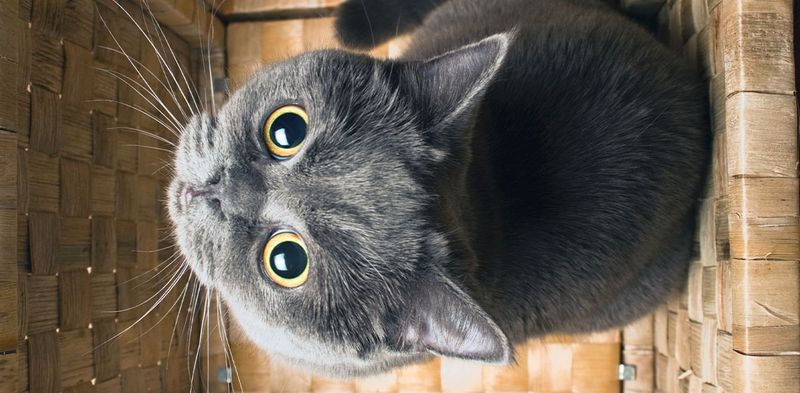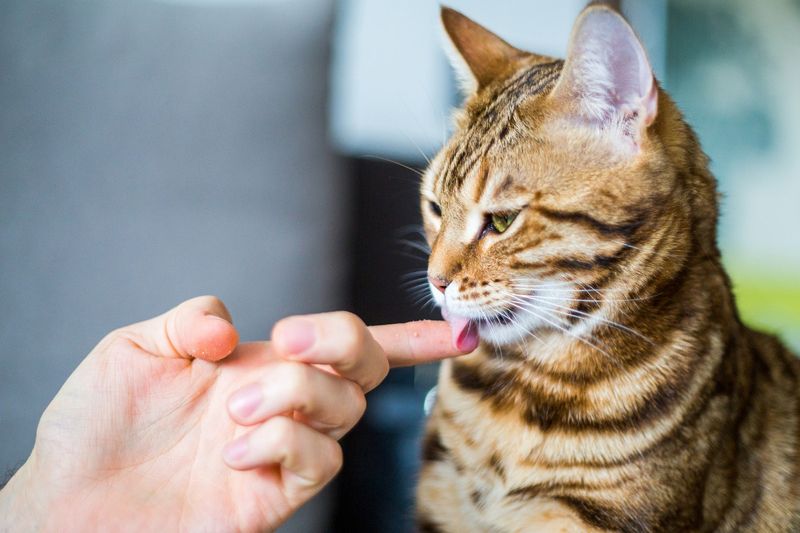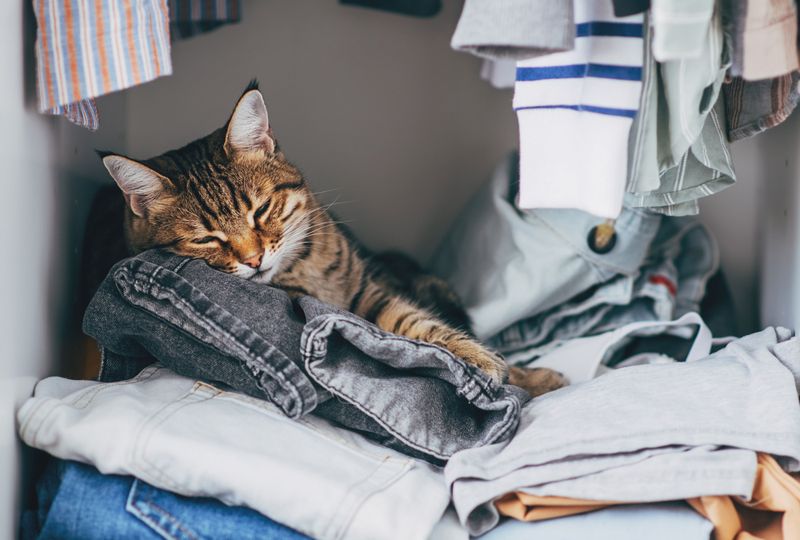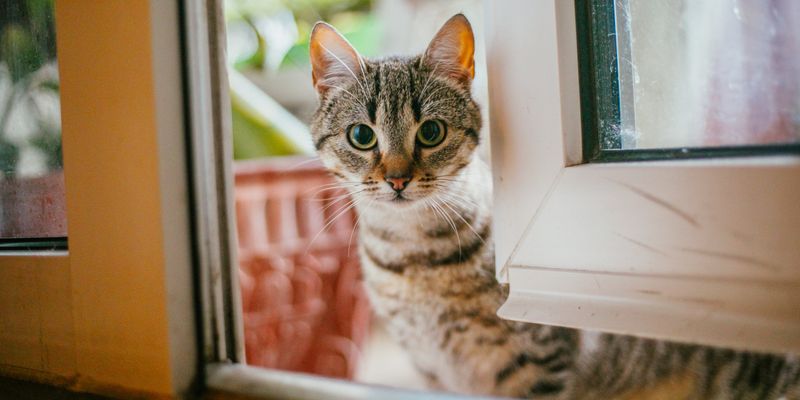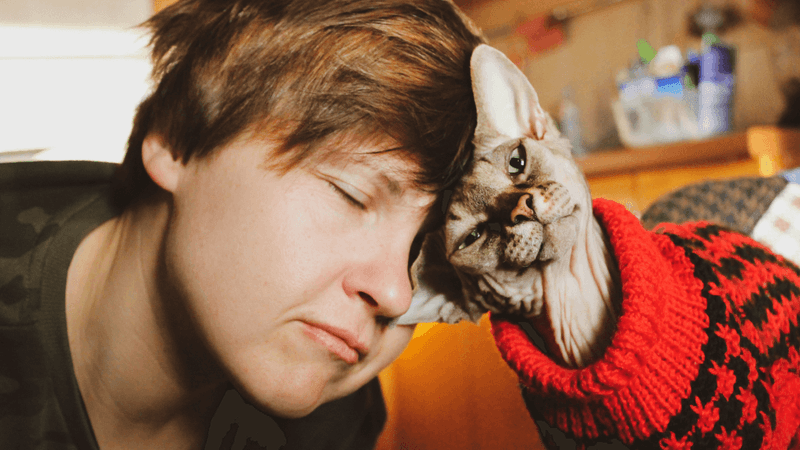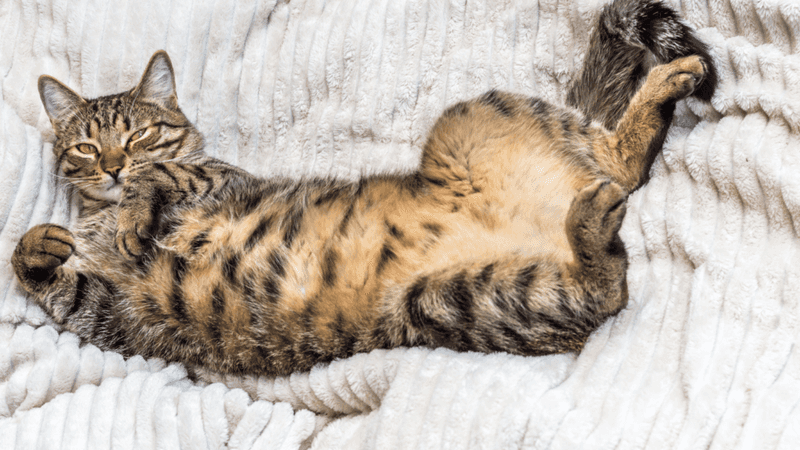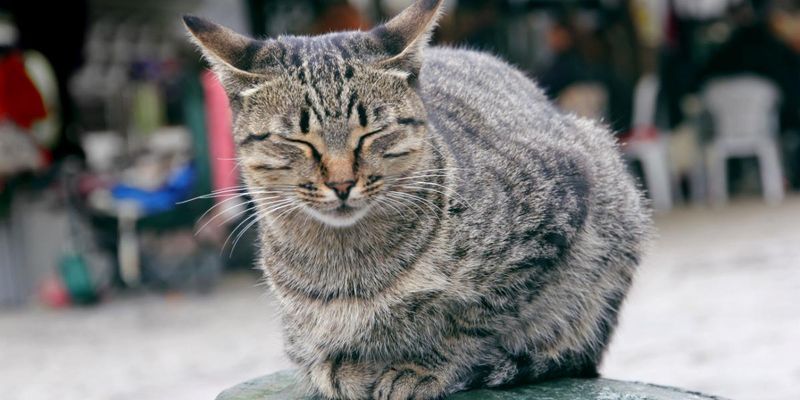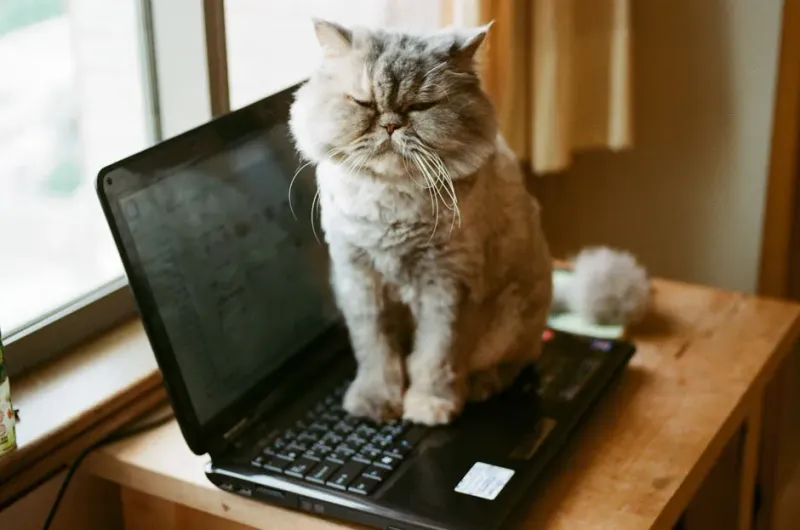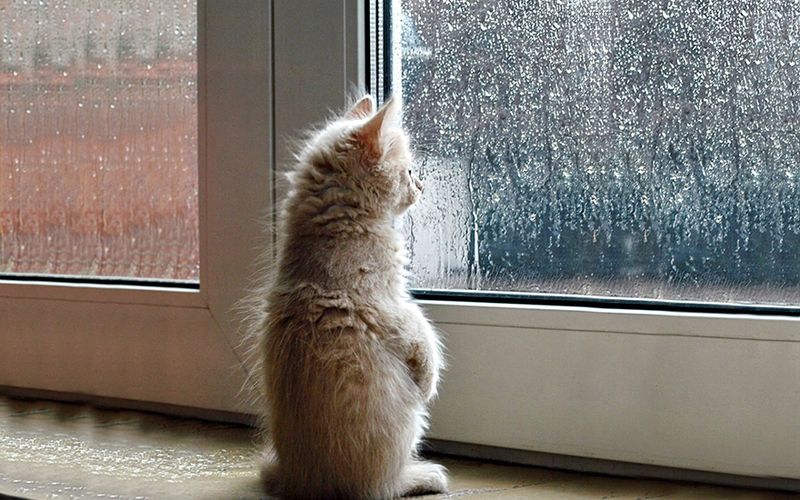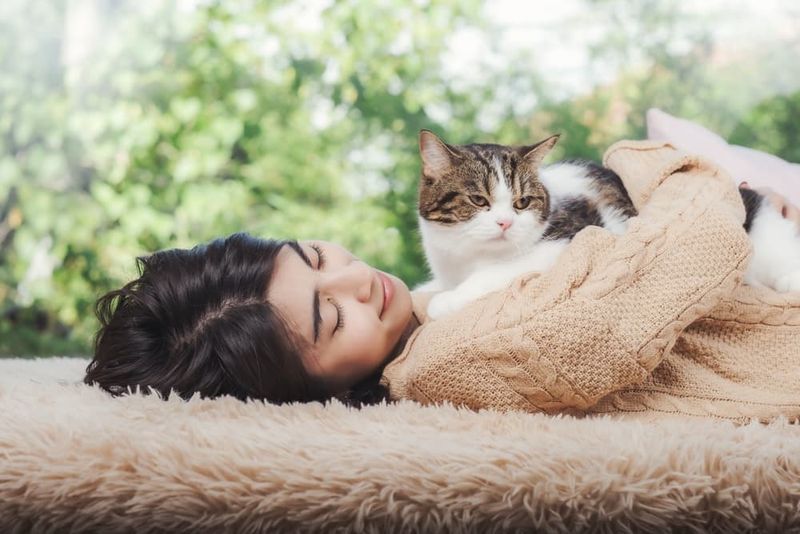📖 Table of Content:
- 1. They Follow You Everywhere (Even to the Bathroom)
- 2. They Bring You “Gifts” (Dead or Alive)
- 3. They Knead Your Lap Like Bread Dough
- 4. They Stare at You…A Lot
- 5. They Groom You (Sandpaper Kisses)
- 6. They Sleep on Your Stuff (Especially Clean Laundry)
- 7. They Chirp and Trill When They See You
- 8. They Headbutt You (Cat Kisses)
- 9. They Show You Their Belly (Ultimate Trust)
- 10. They Slow Blink at You (Cat ‘I Love You’)
- 11. They Interrupt Your Work or Reading
- 12. They Greet You at the Door
- 13. They Sleep on You (Human Mattress Syndrome)
Cats often maintain an air of independence, but beneath that calm exterior lies a deep emotional attachment. Many felines form strong bonds with their humans, often displaying signs of affection in quiet, subtle ways. These behaviors can be easy to overlook but speak volumes about their feelings.
From following footsteps to curling up nearby during work hours, certain actions suggest more than just casual interest. Some cats even interrupt daily routines just to be closer, refusing to let their favorite person out of sight. These small gestures reveal a connection that’s far more intense than it may seem.
Understanding this unique form of devotion requires careful observation. Cats may not always demand attention like dogs, but their love is just as powerful—only delivered with a touch more mystery. For some breeds, this attachment reaches near-obsessive levels, creating a shadow that follows from room to room.
1. They Follow You Everywhere (Even to the Bathroom)
Your personal feline shadow never lets you out of sight. Morning routines include a cat supervisor watching you brush your teeth, shower, and get dressed. They patrol the bathroom door while you’re inside, sometimes pawing underneath as if checking you haven’t disappeared.
This bathroom buddy behavior isn’t just curiosity – it’s attachment. Cats are territorial creatures who consider you part of their domain. When you’re behind closed doors, they can’t protect or monitor their favorite human.
The more persistent their following behavior, the stronger their attachment. Some cats even learn to open doors just to maintain their watchful guardian position.
2. They Bring You “Gifts” (Dead or Alive)
Finding a mouse, bird, or toy on your doorstep isn’t your cat being creepy – it’s their version of bringing flowers. This hunting behavior stems from their natural instinct to teach hunting skills to their family. Congratulations, you’ve been promoted to family member who needs survival lessons!
Wild mother cats teach their kittens to hunt by bringing back prey. When your cat drops these treasures at your feet with a proud meow, they’re showing both affection and concern for your well-being.
The more frequent these offerings, the more your cat considers you their responsibility. It’s their way of contributing to the household.
3. They Knead Your Lap Like Bread Dough
Those rhythmic paw movements on your lap – pushing in and out while your cat purrs contentedly – connect directly to kittenhood. Kittens knead their mother’s belly to stimulate milk flow during nursing. When adult cats continue this behavior with you, they’re displaying deep comfort and trust.
This “making biscuits” motion releases endorphins in your cat’s brain, creating feelings of pleasure and security. It’s essentially their way of saying you make them feel as safe as their mother did.
Cats reserve this vulnerable behavior for surfaces and people they completely trust. The longer and more frequently they knead, the more they adore you.
4. They Stare at You…A Lot
Catching your cat watching you from across the room isn’t a coincidence – it’s devotion. Those long, unblinking gazes mean your feline friend is monitoring their favorite human’s activities with laser focus. Unlike humans, who find staring rude, cats use extended eye contact as a form of bonding.
Scientists have discovered that cats actually release oxytocin (the love hormone) when making eye contact with their preferred humans. This same chemical surge happens between human parents and babies!
The slow blink that often accompanies their stare is even more significant. Cat behaviorists call this the “kitty kiss” – a deliberate sign of affection and trust reserved for their inner circle.
5. They Groom You (Sandpaper Kisses)
Those rough-tongued licks on your hand, face, or hair aren’t just random hygiene inspections. Cat grooming is an intimate social behavior normally reserved for trusted family members. When your cat licks you, they’re essentially treating you as one of their own.
Mutual grooming strengthens bonds between cats in colonies. By extending this behavior to you, your cat is incorporating you into their social structure. Their barbed tongue might feel rough, but the intention behind it is pure affection.
Cats are fastidious creatures who spend up to 50% of their waking hours grooming. Sharing this important ritual with you represents a significant investment of their time and energy.
6. They Sleep on Your Stuff (Especially Clean Laundry)
Finding your cat curled up on your freshly laundered clothes isn’t just about warmth or comfort. Your scent is embedded in your belongings, and your cat wants to be surrounded by it. They’re essentially marinating in your essence while simultaneously marking these items with their own scent.
This scent-mixing creates what animal behaviorists call a “group scent” – a communal identifier that marks you both as part of the same family unit. Your cat is literally claiming you as their person through this behavior.
The items they choose matter too. Frequently worn clothes or recently used items carry stronger scents, making them prime targets for your cat’s napping preferences.
7. They Chirp and Trill When They See You
Those distinctive chirping sounds your cat makes when you enter a room aren’t standard meows – they’re special greetings reserved for favorite companions. Mother cats use these melodic vocalizations to communicate with their kittens. When directed at you, they indicate excitement and affection.
Unlike regular meows (which cats developed primarily to communicate with humans), trills and chirps are instinctual cat-to-cat communications. Your feline friend is speaking to you in their native language!
The pitch and frequency often increase with excitement level. A cat who races to the door trilling loudly when you return home is displaying the feline equivalent of jumping for joy at your arrival.
8. They Headbutt You (Cat Kisses)
That forceful nudge of your cat’s head against your leg, hand, or face is far more significant than it appears. Called “bunting,” this behavior transfers scent glands from their forehead to you, effectively marking you as their territory. It’s the feline equivalent of wearing a sign that says “Property of Cat.”
Beyond scent marking, headbutts represent tremendous trust. By presenting the vulnerable top of their head, your cat is demonstrating complete confidence in your relationship. They’re literally putting their head in your hands!
Cats only bunt objects and people they consider safe and valuable. The frequency and enthusiasm of these headbutts directly correlate with their level of attachment to you.
9. They Show You Their Belly (Ultimate Trust)
A cat displaying their belly isn’t just being cute – they’re making themselves completely vulnerable. The stomach is a cat’s most protected body part, housing vital organs with minimal natural protection. Exposing this area represents extraordinary trust.
Feral cats almost never show their bellies to humans. This behavior develops specifically in cats who feel utterly secure in their environment and relationship with you. It’s essentially your cat saying “I trust you with my life.”
The context matters too. A cat who rolls over specifically when they see you, maintaining eye contact while exposing their belly, is making a deliberate display of trust and affection rather than just stretching or getting comfortable.
10. They Slow Blink at You (Cat ‘I Love You’)
Those lazy, deliberate blinks your cat gives you across the room aren’t signs of boredom – they’re love letters. Cat behaviorists call these “slow blinks” or “eye kisses” and consider them one of the most authentic displays of feline affection.
In cat language, maintaining direct eye contact can be threatening. By deliberately closing their eyes in your presence, they’re communicating complete trust and comfort. They’re essentially saying, “I’m so comfortable with you that I can close my eyes and be vulnerable.”
You can return this gesture by slow-blinking back. Many cats will respond by blinking again, creating a silent conversation of mutual affection that strengthens your bond.
11. They Interrupt Your Work or Reading
The laptop invasion, book blocking, and paper sitting aren’t random acts of mischief – they’re strategic attention-seeking behaviors. Cats are incredibly observant, noticing when objects receive your focus instead of them. Your keyboard-walking companion is essentially saying, “Hey, I’m more interesting than that screen!”
This interruption pattern reveals how closely your cat monitors your attention patterns. They’ve learned exactly which activities compete for your focus and deliberately insert themselves into those scenarios.
The timing is particularly telling. Cats who wait until you’re deeply concentrated before interrupting demonstrate both intelligence and a strong desire for your exclusive attention – hallmarks of a deeply attached feline.
12. They Greet You at the Door
The feline welcome committee that activates when you return home speaks volumes about your cat’s attachment. Unlike dogs, cats aren’t naturally inclined to greet at entrances – this behavior develops specifically for humans they’ve bonded with deeply.
Cats who wait by windows or doors have been tracking your schedule and anticipating your return. Some even recognize the specific sounds of your car or footsteps, responding before you’ve even entered.
The greeting style matters too. A cat who runs to the door with tail held high (the feline equivalent of a friendly wave) and rubs against your legs is performing a ritualized welcome reserved for their most important social connections.
13. They Sleep on You (Human Mattress Syndrome)
Your cat choosing your chest, lap, or even face as their preferred sleeping spot isn’t just about comfort – it’s a profound display of trust and attachment. Sleep makes animals vulnerable to predators, so cats only doze deeply around those they completely trust.
Body heat plays a role, but the primary motivation is security and connection. Your heartbeat, breathing rhythm, and familiar scent create the perfect relaxation environment for your feline friend. Studies show cats often synchronize their sleep cycles with their preferred humans.
The specific position reveals even more. A cat who sleeps with their back to you is showing ultimate trust, while one who faces you is prioritizing monitoring your movements – both signs of deep attachment.
